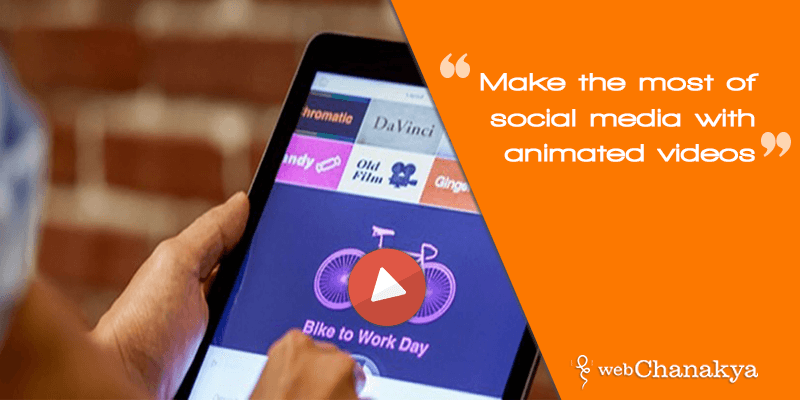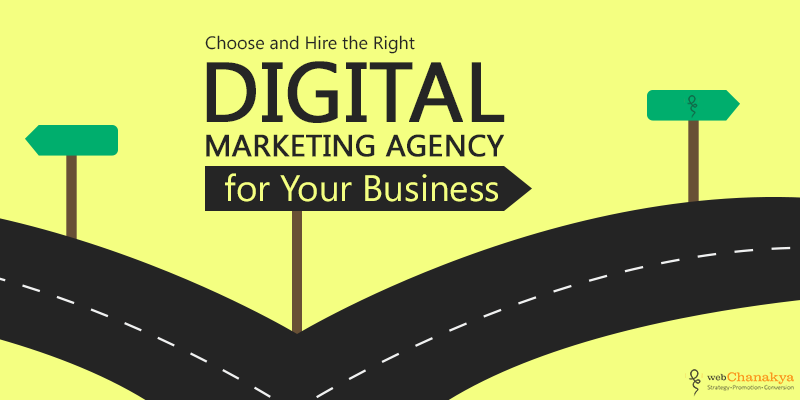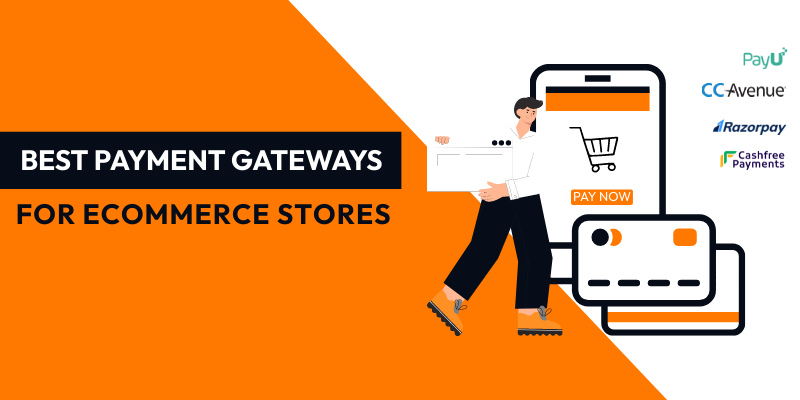
Best Digital Marketing Courses in Ahmedabad that land you Jobs in 2025
March 28, 2023
Building Email Lists Through Social Media: 2025 Ecommerce Guide
June 8, 2025Table of Contents
- 1 Understanding different Digital Marketing Service Providers
- 2 First, let’s explore the four major categories of digital marketing service providers:
- 3 Understanding Your Business Needs and Goals
- 4 Researching Potential Digital Marketing Agencies
- 5 Budgeting and Cost Considerations
- 6 Meeting with Shortlisted Agencies
- 7 Making the Final Decision
- 8 Establishing Clear Communication and Expectations
Understanding different Digital Marketing Service Providers
Digital marketing has become an essential part of running a successful business in today’s highly digitized world. Businesses have a variety of options for choosing a digital marketing service provider. Each type offers unique advantages and potential drawbacks, catering to different needs and budgets.
Let us assist you in finding the perfect agency that precisely matches your requirements and financial resources.

First, let’s explore the four major categories of digital marketing service providers:
Full-Service Agencies
Full-service digital marketing agencies are one-stop shops for all your digital marketing needs. These agencies offer a comprehensive suite of services, including:
- Search Engine Optimization (SEO)
- Pay-Per-Click (PPC) advertising
- Social Media Marketing
- Content Marketing
- Email Marketing
- Web Design and Development
- Analytics and Reporting
Advantages:
- Integrated strategies across multiple channels
- Access to a diverse team of experts
- Consistent brand messaging across all platforms
- Streamlined communication with a single point of contact
Considerations:
- More expensive than other options
- May not have deep specialization in niche areas
- Potential for less personalized attention because of larger client base
Full-service agencies are ideal for businesses that want a comprehensive approach to their digital marketing and have the budget for all-inclusive services.
Specialized Agencies
Specialized agencies focus on one or a few specific areas of digital marketing. Common specializations include:
- SEO agencies
- PPC agencies
- Social media marketing agencies
- Content marketing agencies
Advantages:
- Deep expertise in their specific field
- Often at the forefront of industry trends and best practices
- Typically more cost-effective than full-service agencies for their area of focus
Considerations:
- Limited scope of services
- May require coordination with multiple agencies for a complete marketing strategy
- Potential for siloed strategies if not properly integrated
If your business needs expert help in a specific area of digital marketing, or if you have identified a particular channel that is crucial for your growth, specialized agencies are the perfect solution.
Consultants
Digital marketing consultants are industry experts who provide strategic advice and guidance. They typically:
- Analyze current marketing efforts
- Develop comprehensive digital marketing strategies
- Provide training and mentorship to in-house teams
- Offer ongoing support and optimization recommendations
Advantages:
- Personalized attention and tailored strategies
- Flexibility to work with existing teams or other service providers
- Often bring a wealth of cross-industry experience
- Can be more cost-effective for strategy-focused needs
Considerations:
- Rarely handle day-to-day execution of marketing tactics
- May require more internal resources to implement recommendations
- Varying levels of expertise and experience among individual consultants
Consultants offer valuable expertise that can significantly benefit businesses with established marketing capabilities. Their knowledge and skills can help enhance marketing strategies and overcome challenges, leading to even greater success.
Freelancers
Freelancers are independent professionals who specialize in one or more areas of digital marketing. They can be hired for specific projects or ongoing.
Advantages:
- Often the most cost-effective option, especially for small businesses or startups
- Flexibility in terms of project scope and duration
- Direct communication with the person doing the work
- Access to niche skills or expertise
Considerations:
- Limited capacity, which may impact turnaround times for larger projects
- Potential for inconsistency if working with multiple freelancers
- May lack the breadth of experience found in agencies or established consultants
- Requires more management and coordination from the client
Freelancers are ideal for businesses with specific, well-defined digital marketing needs, limited budgets, or those looking for specialized skills for particular projects.
The choice of digital marketing service provider depends on various factors, including your business size, budget, specific needs, and internal capabilities.
Understanding the strengths and limitations of each provider type enables you to make well-informed decisions that support your digital marketing objectives and overall business strategy.
Understanding Your Business Needs and Goals

Assessing Your Business’s Current Digital Marketing Strategy
Before diving into the search for an ideal digital marketing agency, it’s crucial to assess your existing digital marketing strategy. By understanding where you currently stand, you can better identify gaps and areas of improvement.
Conduct a Digital Marketing Audit
Perform a thorough digital marketing audit. Check the following areas:
- Website Performance: Analyze traffic, bounce rates, and user engagement.
- Social Media Presence: Evaluate engagement, follower growth, and content performance.
- SEO Metrics: Review keyword rankings, backlinks, and organic traffic.
Analyze Current Campaigns
Assess the performance of ongoing marketing campaigns:
- ROI Analysis: Determine the return on investment for each campaign.
- Audience Reach: Identify which campaigns have successfully reached your target audience.
- Conversion Rates: Evaluate the effectiveness in driving sales or leads.
Identify Strengths and Weaknesses
List your current strategy’s strengths and weaknesses.
- Strengths: Highlight effective channels and tactics.
- Weaknesses: Note areas that underperform or lack resources.
Carefully assessing your business’s current digital marketing strategy, you lay the groundwork for identifying specific objectives and areas to focus on next.
Identifying Your Specific Objectives and Target Audience
Once you’ve assessed your current digital marketing strategy, the next step involves identifying your specific objectives and target audience. Clearly defined goals and a well-understood audience shape the direction of your marketing efforts.
Define Specific Objectives
Set clear, measurable objectives to guide your strategy.
- Increase Brand Awareness: Focus on expanding your brand’s visibility. –
- Generate Leads: Aim to attract potential customers and build contact lists. –
- Boost Sales: Concentrate on strategies that drive direct purchases.
Understand Your Target Audience
Thoroughly analyze and define your ideal target audience:
- Demographics: Consider age, gender, income, and location.
- Psychographics: Understand interests, values, and lifestyle choices.
- Behavioral Patterns: Note online behaviors, purchase habits, and brand interactions.
Create Buyer Personas
Develop buyer personas to personify your target audience segments:
- Primary Persona: Your most frequent and valuable customer type.
- Secondary Personas: Less common customer types who still represent a significant market segment.
By pinpointing your specific objectives and understanding your target audience, you can tailor your digital marketing efforts effectively, ensuring they resonate with the right people and drive the desired outcomes.
Researching Potential Digital Marketing Agencies

Researching and Short-listing Agencies with Relevant Industry Experience
After clearly identifying your objectives and target audience, the next step is to research and create a shortlist of digital marketing agencies with relevant industry experience. Partnering with an agency familiar with your industry can significantly streamline your marketing efforts.
Start with Industry-Specific Research
Look for agencies that have a proven track record in your specific industry:
- Review Case Studies: Examine case studies and client testimonials.
- Check Portfolio: Evaluate the diversity and success of previous work.
- Industry Awards: Consider agencies recognized by industry awards or certifications.
Assess Their Expertise
Make sure the agencies possess the expertise required for your unique needs:
- Specialized Services: Ensure they offer services like SEO, PPC, or social media marketing that align with your objectives.
- Technological Proficiency: Verify their proficiency in using the latest digital marketing tools and platforms.
Create a Shortlist
Compile a shortlist of potential agencies based on your research.
- Top Performers: Highlight agencies with the most relevant experience and best reviews.
- Local vs. Global: Decide whether you prefer a local agency for face-to-face meetings or a global one for broader reach.
Selecting an agency with industry experience, you improve the chances of finding a partner who comprehends your market dynamics, resulting in more effective marketing campaigns.
Evaluating the Reputation and Track Record of Potential Agencies
Once you’ve shortlisted agencies based on industry experience, the next logical step is evaluating their reputation and track record. A well-regarded agency with proven success increases your chances of achieving your digital marketing goals.
Read Client Reviews and Testimonials
Client reviews and testimonials provide insight into the agency’s reliability and client satisfaction: –
- Online Reviews: Look on platforms like Google, Yelp, and industry-specific forums.
- Testimonials: Check their website for testimonials with measurable results.
Examine Case Studies
Case studies showcase an agency’s problem-solving abilities and success rates:
- Success Stories: Look for tangible outcomes and similar business types.
- Challenges Overcome: Understand the hurdles they faced and how they addressed them.
Check Industry Recognition
Consider industry recognition as a marker of credibility:
- Awards: Note any awards or recognitions for excellence in digital marketing.
- Certifications: Look for certifications from reputable organizations like Google Partners or HubSpot.
Seek Professional References
Ask for professional references to get firsthand feedback:
- Contact Clients: Speak directly with past clients about their experiences.
- Project Insights: Inquire about the project scope, timelines, and overall satisfaction.
Thoroughly evaluating the reputation and track record of potential agencies, you can ensure you’re teaming up with a reputable and effective partner, poised to deliver optimal results.
Budgeting and Cost Considerations

Determining Your Budget and Cost Constraints for Hiring a Digital Marketing Agency
After evaluating the reputation and track record of potential agencies, it’s essential to determine your budget and cost constraints for hiring a digital marketing agency effectively. Financial clarity helps align your expectations with the agency’s capabilities.
Assess Your Marketing Budget
Start by assessing your overall marketing budget.
- Percentage of Revenue: Allocate a percentage of your annual revenue to digital marketing.
- Previous Spending: Evaluate previous marketing expenditures and results.
- Future Projections: Consider growth targets and how much you’re willing to invest to achieve them.
Identify Cost Constraints
Understand your cost constraints:
- Fixed costs: Include monthly retainers and agreed-upon service fees.
- Variable Costs: Account for additional expenses like paid advertising, content creation, and software subscriptions.
Prioritize Marketing Needs
Prioritize your marketing needs based on budget:
- Essential Services: Focus on must-have services such as SEO and PPC that drive immediate results.
- Additional Services: Consider secondary services like social media management once essential needs are met.
Request Quotes and Proposals
Request quotes and proposals from shortlisted agencies:
- Detailed Proposals: Examine cost breakdowns for services offered.
- Flexible Packages: Look for agencies offering customizable packages within your budget.
By determining your budget and understanding your cost constraints, you can make more informed decisions, ensuring you select an agency that provides optimal value without exceeding your financial limits.
Negotiating Pricing and Services Offered by Different Agencies
Once you’ve established your budget and cost constraints, the next step involves negotiating pricing and services offered by different agencies. Effective negotiation ensures you get the best value for your investment.
Compare Cost Proposals
Start by comparing cost proposals from various agencies:
- Service Breakdown: Ensure you understand what each service includes.
- Package Options: Look for flexibility in service packages tailored to your needs.
Discuss Pricing Flexibility
Engage in discussions about pricing flexibility:
- Discounts: Inquire about possible discounts for long-term commitments or bundled services.
- Payment Terms: Negotiate payment terms such as installments or deferred payments.
Prioritize Critical Services
Focus on critical services during negotiation:
- Essentials First: Ensure must-have services like SEO, PPC, or content marketing are given precedence.
- Custom Needs: Tailor the services to meet your unique business needs effectively.
Examine Contract Terms
Carefully review and negotiate contract terms:
- Duration: Discuss the contract length and possibilities for renewal.
- Exit Clauses: Understand any clauses related to early termination or scope adjustments.
Seek Added Value
Ask about value-added services:
- Extra Support: Look for agencies offering additional support or consultation at no extra cost.
- Reporting and Analytics: Ensure you get comprehensive reporting on campaign performance.
Negotiating pricing and services effectively, you can secure a deal that maximizes your marketing efforts while staying within budget, ensuring a fruitful partnership with your chosen digital marketing agency.
Meeting with Shortlisted Agencies

Setting Up Meetings or Consultations with Shortlisted Agencies
After successfully negotiating pricing and services, the next step is setting up meetings or consultations with shortlisted agencies. These interactions provide a clearer picture of their approaches and compatibility with your business.
Schedule Initial Consultations
Start by scheduling initial consultations:
- Contact Agencies: Reach out to shortlisted candidates to arrange meetings.
- Availability: Coordinate schedules to find convenient times for all parties.
Prepare for the Meeting
Ensure you’re well-prepared for each consultation:
- List of Questions: Prepare a list of questions about their strategies, tools, and past successes.
- Business Overview: Have a brief presentation ready about your business, objectives, and challenges.
Evaluate Communication
Use these meetings to evaluate communication and rapport:
- Responsiveness: Note their responsiveness and willingness to answer queries.
- Team Dynamic: Assess whether their team understands and aligns with your business values.
Discuss Expectations
Discuss your expectations and objectives:
- Goals: Clearly outline your marketing goals.
- Timelines: Talk about expected timelines for achieving these goals.
- Metrics: Identify which metrics will be used to measure success.
Request Additional Information
Request any additional information needed to make an informed decision:
- Detailed Proposals: Ask for a more detailed proposal if you need further clarity.
- Case Studies: Request case studies that showcase their abilities in similar industries.
Set up meetings or consultations with shortlisted agencies, try to gain valuable insights into their methodologies and determine which agency is the best fit for your business needs and objectives.
Asking Relevant Questions About Their Approach, Strategies, and Past Successes
During your meetings or consultations, it’s crucial to ask relevant questions about their approach, strategies, and past successes. These questions will help you judge the agency’s capabilities and compatibility with your business.
Understand Their Approach
Start by understanding the agency’s overall approach:
- Marketing Philosophy: Ask about their digital marketing philosophy and core principles.
- Process: Inquire about their process for developing and implementing campaigns.
- Personalization: Understand how they tailor strategies to fit individual business needs.
Dig into Their Strategies
Get a deeper insight into their strategies:
- SEO and SEM: Ask for details on their search engine optimization and marketing strategies.
- Content Marketing: Discuss their approach to creating and distributing impactful content.
- Social Media: Explore their tactics for managing and growing social media presence.
Review Past Successes
Examine their past successes:
It is crucial to examine their past successes. This will give you a clear idea of their capabilities and their ability to deliver results.
- Case Studies: Request case studies showcasing successful campaigns in your industry.
- Client Testimonials: Ask for client testimonials and the results achieved.
- Metrics: Inquire about specific performance metrics and ROI.
While reviewing their past successes, consider the types of marketing strategies and tactics they have used. Have they focused primarily on a specific channel, such as social media marketing or search engine optimization? Or have they demonstrated proficiency across various digital marketing channels?
Evaluate Their Team
A strong and skilled team can make a significant difference in the success of your marketing campaigns.
Here are a few factors to consider when evaluating their team:
- Credentials: Ask about the team’s qualifications and experience in digital marketing.
- Specialists: Identify if they have specialists in areas critical to your goals, like PPC or social media.
Communication and Reporting
Communication and reporting are key aspects of a successful partnership with a digital marketing agency. It is important to ensure that the agency maintains open lines of communication and provides regular updates on the progress of your marketing campaigns.
Clarify their communication and reporting practices:
- Frequency: Ask about the frequency and format of updates and reports.
- Transparency: Ensure they are transparent with data and performance metrics.
Asking relevant questions about their approach, strategies, and past successes, you can gauge the agency’s suitability for your business, ensuring a partnership that is likely to yield positive outcomes.
Making the Final Decision

Comparing Proposals, Case Studies, and Recommendations from Different Agencies
After gathering insights from your meetings, the next step involves comparing proposals, case studies, and recommendations from different agencies. This comparative analysis ensures you make an informed decision.
Review Proposals
Start by reviewing proposals from each agency:
- Service Offerings: Compare the range of services included.
- Pricing Structure: Analyze the cost breakdown and overall pricing.
- Customization: Evaluate how well the proposals are tailored to your business objectives.
Analyze Case Studies
Compare case studies to gauge past performance:
- Relevance: Look for cases that mirror your industry and marketing goals.
- Results: Focus on the results achieved, such as ROI, engagement, and growth.
- Problem-Solving: Understand the challenges faced and solutions provided.
Evaluate Recommendations
Examine the recommendations provided by each agency:
- Strategy Fit: Determine how well their recommended strategies align with your vision.
- Innovation: Look for innovative ideas that set them apart.
- Feasibility: Consider the practicality and feasibility of the recommendations.
Create a Comparison Table
Consider creating a comparison table to simplify decision-making:
| Criteria | Agency A | Agency B | Agency C |
|---|---|---|---|
| Service Offerings | Listed | Listed | Listed |
| Cost | $X/month | $Y/month | $Z/month |
| Relevant Case Studies | Yes/No | Yes/No | Yes/No |
| Recommendations | Listed | Listed | Listed |
Seek Stakeholder Input
Involve key stakeholders in the decision-making process:
- Feedback: Collect feedback from relevant team members.
- Consensus: Aim for a consensus on the best fit for your needs.
Thoroughly compare proposals, case studies, and recommendations to ensure a well-rounded evaluation. This will lead to an informed and strategic choice for your digital marketing needs.
Selecting the Agency That Aligns Best with Your Needs and Budget
After a comprehensive comparison of proposals, case studies, and recommendations, the final step is selecting the agency that aligns best with your needs and budget. This decision will have a significant impact on your marketing success.
Assess Alignment with Needs
Begin by assessing how well each agency aligns with your specific business needs:
- Core Objectives: Ensure the agency’s strategies align with your core marketing goals.
- Customization: Check that the agency provides personalized solutions designed for your industry and target audience.
- Expertise: Confirm their expertise in key areas crucial to your objectives, such as SEO, PPC, or social media.
Evaluate Budget Compatibility
Evaluate the budget compatibility of each agency:
- Cost-Effectiveness: Choose an agency offering the best value for your budget constraints.
- Service Inclusions: Ensure no hidden costs and that the quoted price includes all necessary services.
- Payment Terms: Opt for payment terms that suit your financial planning, such as flexible installment plans.
Check References and Feedback
Gather references and feedback on shortlisted agencies:
- Client Referrals: Contact clients to confirm their satisfaction.
- Online Reviews: Look for consistent positive feedback across various platforms.
Make the Final Choice
Make the final choice based on a balanced evaluation of needs and budget:
- Consensus: Reach a consensus with your decision-making team.
- Pre-Contract Negotiations: Finalize any pre-contract negotiations regarding terms and expectations.
Choose an agency that closely aligns with your business needs and budget. This is essential in building a solid foundation for a successful partnership that will effectively propel your digital marketing goals forward..
Establishing Clear Communication and Expectations

Setting Clear Goals, Timelines, and Communication Channels with Agency
After selecting the agency that aligns best with your needs and budget, it’s crucial to set clear goals, timelines, and communication channels to ensure smooth collaboration and effective results.
Define Clear Goals
Start by defining clear and measurable goals:
- Specific Objectives: Set specific, actionable objectives, such as increasing website traffic or boosting lead generation.
- Key Performance Indicators: Identify KPIs to measure success, such as conversion rates, ROI, and engagement metrics.
Establish Timelines
Establish realistic timelines for each goal:
- Project Milestones: Break down the project into milestones with deadlines.
- Campaign Duration: Determine the duration for each marketing campaign and review periods.
- Regular Updates: Schedule regular progress reviews and updates.
Set Up Communication Channels
Set up effective communication channels:
- Primary Contacts: Assign primary contacts from both your team and the agency.
- Communication Tools: Decide on the communication tools to be used, such as email, project management software, or video calls.
- Meeting Frequency: Agree on the frequency of meetings — weekly, bi-weekly, or monthly check-ins.
Align on Expectations
Ensure both parties are aligned on expectations:
- Roles and Responsibilities: Clearly define each party’s roles and responsibilities.
- Reporting: Decide on the format and frequency of reports.
- Feedback Mechanism: Establish a feedback mechanism for continuous improvement.
By setting clear goals, timelines, and communication channels, you lay the groundwork for a productive and transparent partnership, steering your digital marketing efforts towards success.
Monitoring Progress and Ensuring Regular Updates on Campaign Performance
With clear goals, timelines, and communication channels established, the next essential step is monitoring progress and ensuring regular updates on campaign performance. Continuous monitoring helps in making data-driven decisions and timely adjustments.
Implement Tracking Tools
Start by implementing effective tracking tools:
- Analytics Software: Utilize tools like Google Analytics or HubSpot to track performance metrics.
- Social Media Tools: Use social media management tools to monitor engagement and reach.
Schedule Regular Updates
Schedule regular updates to stay informed about campaign progress:
- Weekly Reports: Receive weekly updates on key metrics and campaign activities.
- Monthly Reviews: Conduct monthly in-depth reviews to assess overall performance.
- Quarterly Summits: Hold quarterly meetings to discuss strategic adjustments.
Analyze Key Metrics
Focus on analyzing key performance metrics:
- Traffic Data: Monitor website traffic, new visitors, and session durations.
- Conversion Rates: Evaluate the conversion rates for various campaigns.
- Engagement Metrics: Track social media engagement such as likes, shares, and comments.
Adjust Strategies Accordingly
Make strategic adjustments based on the data collected:
- A/B Testing: Implement A/B tests to optimize marketing tactics.
- Budget Allocation: Reallocate budget towards higher-performing campaigns.
- Content Tweaks: Adjust content strategies based on audience interaction.
Maintain Open Communication
Keep communication channels open and transparent:
- Feedback Loop: Maintain a constant feedback loop for ongoing improvements.
- Action Plans: Develop action plans to address any emerging challenges.
Monitor progress diligently, ensure regular updates on campaign performance, maintain alignment with your goals, optimize strategies in real-time, and achieve continuous improvement in your digital marketing efforts.
It’s essential for businesses looking to thrive in the modern market. As we move forward, the importance of digital marketing is set to skyrocket, offering unprecedented opportunities for businesses to connect with their target audience.
Are you ready to harness the power of digital marketing for your business?
At WebChanakya, we specialize in helping companies like yours create a lasting impression in the digital realm. Our expertise spans across various aspects of online marketing, ensuring that your brand stands out in the crowded digital space.
Don’t let your business fall behind in the digital race. Take the first step towards a stronger online presence today.
Contact us for a free consultation, and let’s discuss how WebChanakya can tailor a digital marketing strategy that aligns with your business goals. Whether you’re looking to boost your social media engagement, improve your search engine rankings, or develop a comprehensive digital marketing plan, we’re here to help.
Ready to transform your digital presence? Reach out to WebChanakya now. Click Here to Call Back or fill out our online inquiry form to schedule your free consultation.
Let’s work together to unlock your business’s full potential.




